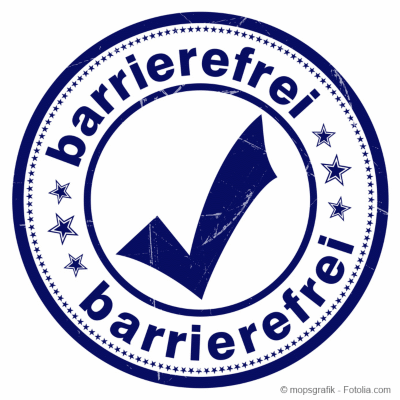Universal accessibility with PDF/UA
PDF/UA (Universal Accessibility) was published in July 2012 as the ISO 14298-1 standard and designates a variety of the PDF standard for creating accessible PDF documents.
This standard not only marks the first time that uniform requirements for the universal accessibility of PDF documents were described, but also ensures that these PDF documents comply with the recommendations included in the Web Content Accessibility Guidelines 2.0. The requirements set forth in the standard do not apply exclusively to the PDF file format, but also to conformant assistive technologies and PDF programs.
Numerous countries have signed the United Nations Convention on the Rights of Persons with Disabilities that promotes the systematic development towards an inclusive society. Now it’s time to implement this convention on a national level and finally eliminate all the remaining barriers to accessibility. Unfettered access to information and communications is an important aspect of our society and one in which the PDF/UA format can play a crucial role.
PDF has established itself as the preferred global medium for disseminating information in digital form both because of its reliability and user friendliness. Tags can be used to structure its content and represent a key requirement for making assistive technologies, such as screen readers or speech input and output, work. However, because tags are used so seldom and not every software can read them, this means that accessibility for people with disabilities is not fully ensured. This is an untenable situation for our society and not only in light of the UN Convention on the Rights of Persons with Disabilities.
The ISO 14289-1 standard, also known as PDF/UA, was published in July 2012 to promote and ensure accessibility. As the name UA implies, this standard specifies how universally accessible electronic documents are to be produced. The primary target audiences for this PDF/UA format are the developers of software programs for creating, reading, processing and validating PDF documents, as well as suppliers of assistive technologies. What’s more, the PDF Association has teamed up with the Swiss “Access for All” foundation to initiate a project designed to enhance the open source NVDA screen reader to conform to the PDF/UA standard. You can see how the PDF/UA format is making an important contribution toward a society that is truly inclusive.

